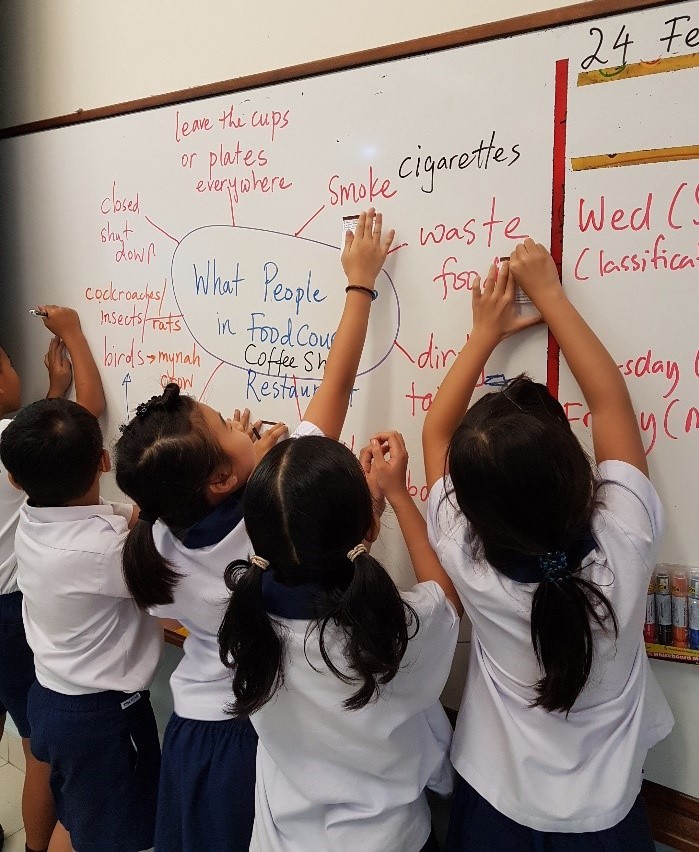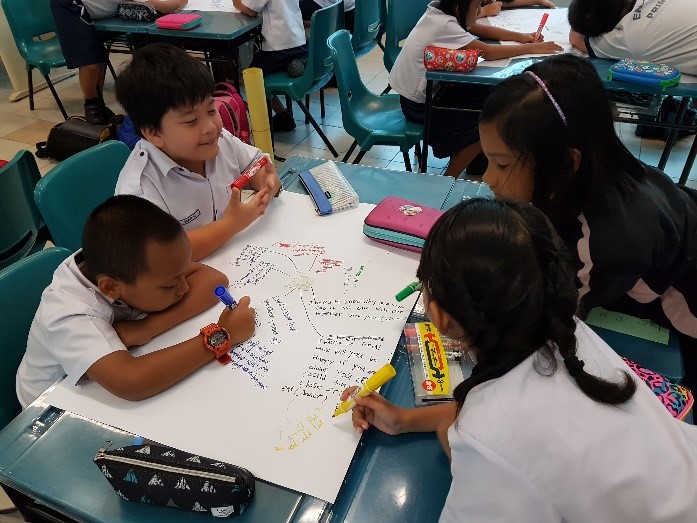Applied Learning Programme@EDP
Nurturing Thinking
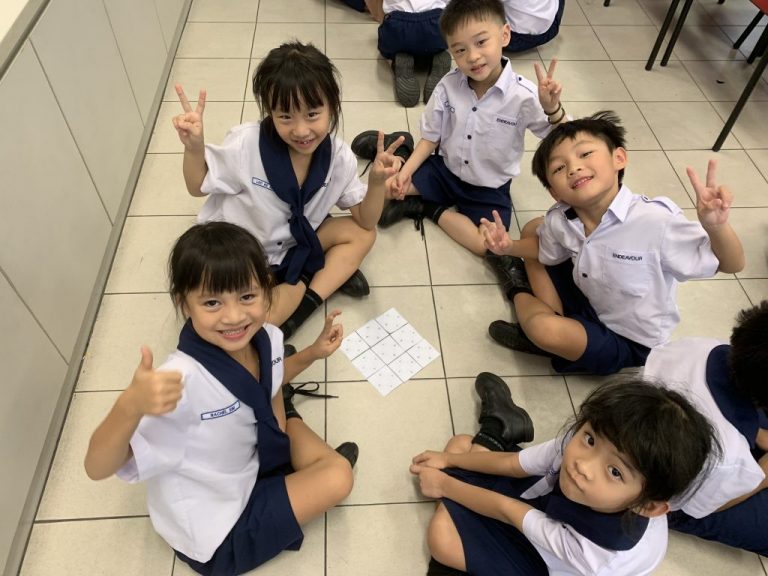
In Endeavour Primary, our Applied Learning Programme (ALP) is on “Nurturing Thinking”.
Through this ALP, we hope to achieve the following desired 21CC and learning outcomes:
1. Deepen students’ sense of purpose in learning by relating what they learn to authentic situations
2. Use Learner-centred pedagogies to help students become self-directed and collaborative learners
3. Increase student ownership where students discover, generate ideas, think critically, make decisions, evaluate and self-reflect.
Applied Learning Programme (ALP) Nurturing Thinking
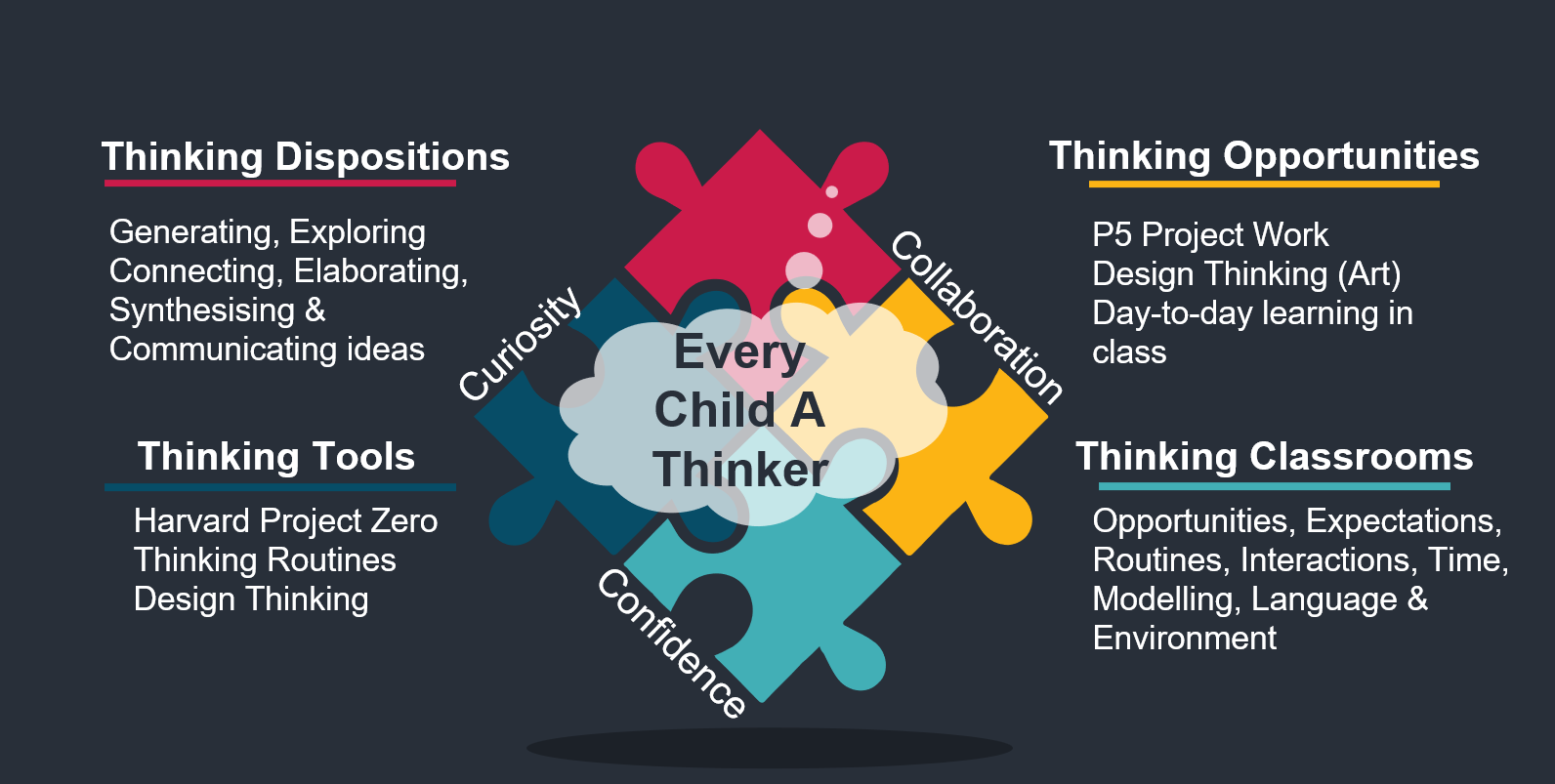
Through the ALP (Nurturing Thinking), we seek to develop every child’s thinking dispositions so that our children could
• Develop a sense of wonder
• Learn to appreciate and build on one another’s ideas
• Make good connections of what they learn to the real world
• Ask good questions, and
• Communicate their ideas coherently and confidently.
These can be achieved through providing them thinking opportunities in their day-to-day learning and using suitable thinking tools (e.g. Harvard Project Zero Thinking Routines or Design Thinking) to guide them in their thinking.
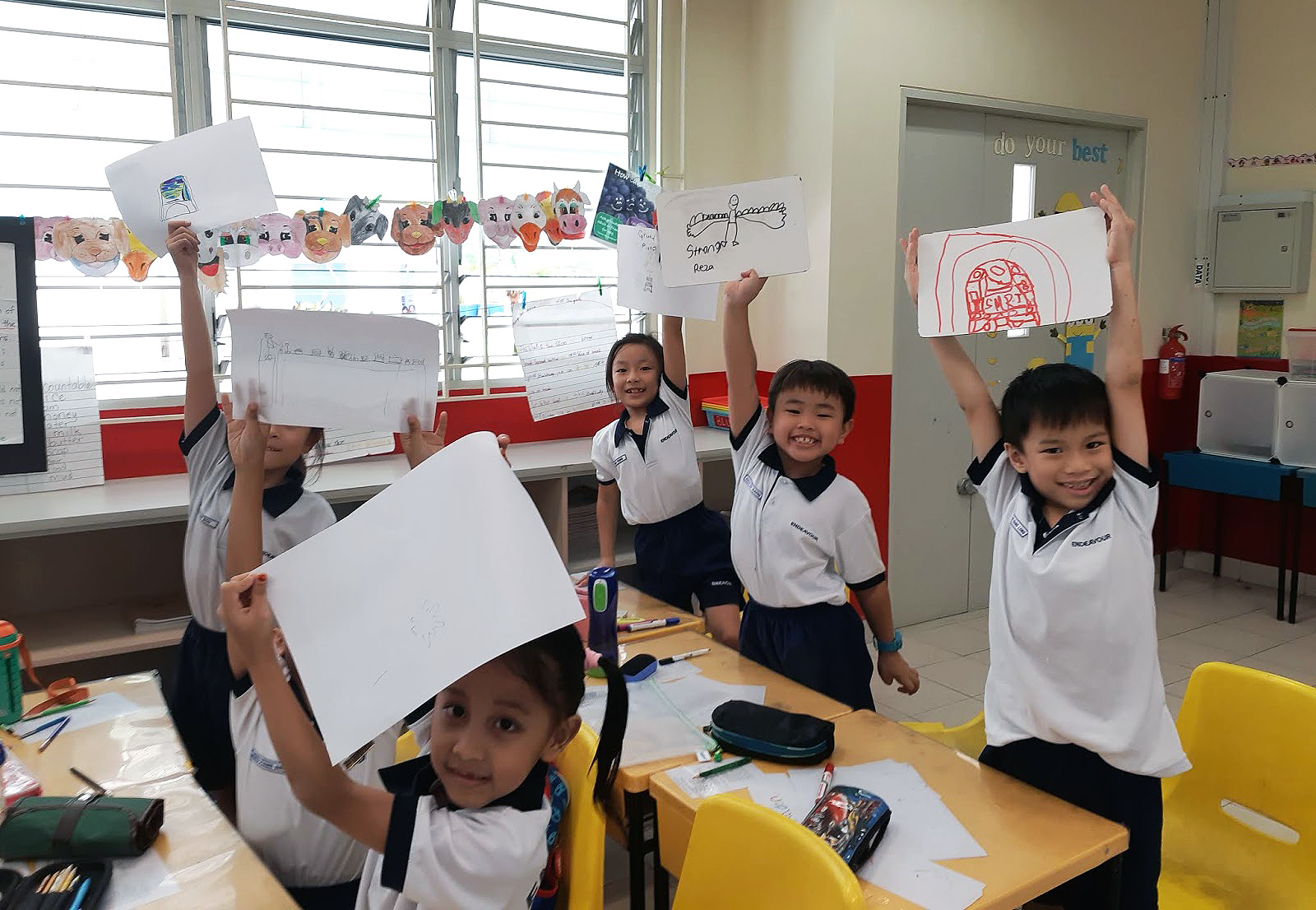
In the middle primary levels, students deepen their thinking by thinking critically. In Science Subject, students will be engaged in a mini research project utilising an ICT tool (Knowledge Foundation platform) that allows them to research for relevant information and further build on the community of ideas. Using the scaffolds in KF platform, students will elaborate on their ideas and claims with relevant evidence obtained from various sources. We hope to develop them into self-directed and collaborative learners who are able to think critically, assess options and make sound decisions.
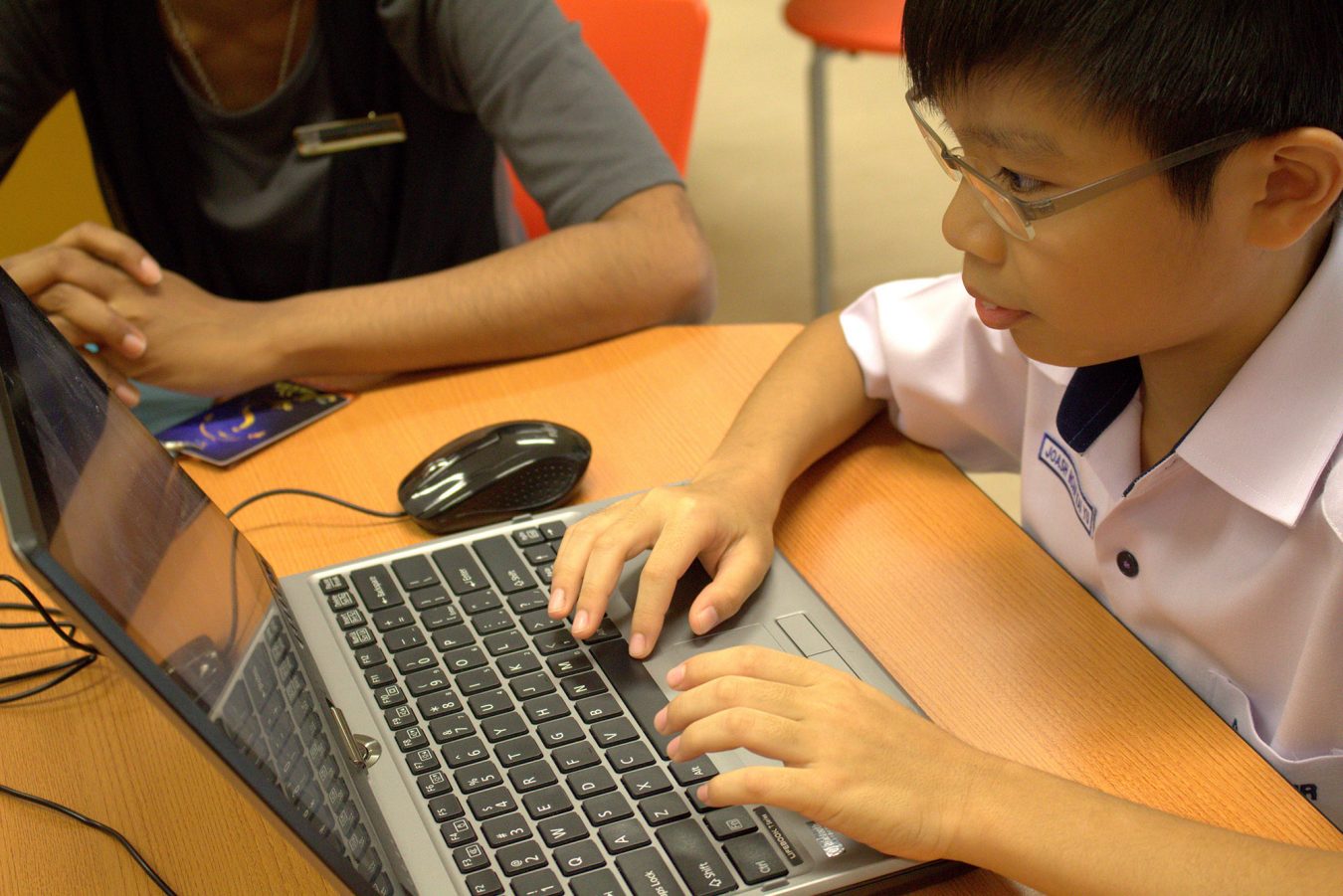
In the upper primary levels, students will be engaged in an interdisciplinary project, applying the thinking routines and knowledge-building principles they have acquired in preceding years. P5 students will partake in an interdisciplinary project where students use knowledge and skills acquired from different subjects (e.g. EL, Art/Music/PE & CCE) to propose a suitable and engaging activity for their VIA visit to an elderly home. The project culminates in a meaningful visit to the elderly home where students mingle with the elderly and thereafter, reflect on and share their rich learning experiences. P6 students, on the other hand, will partake in the Social Studies cum English Language Interdisciplinary Project on contemporary issues and ASEAN. Through these, we hope to develop them into concerned citizens and active contributors with cross-cultural skills.
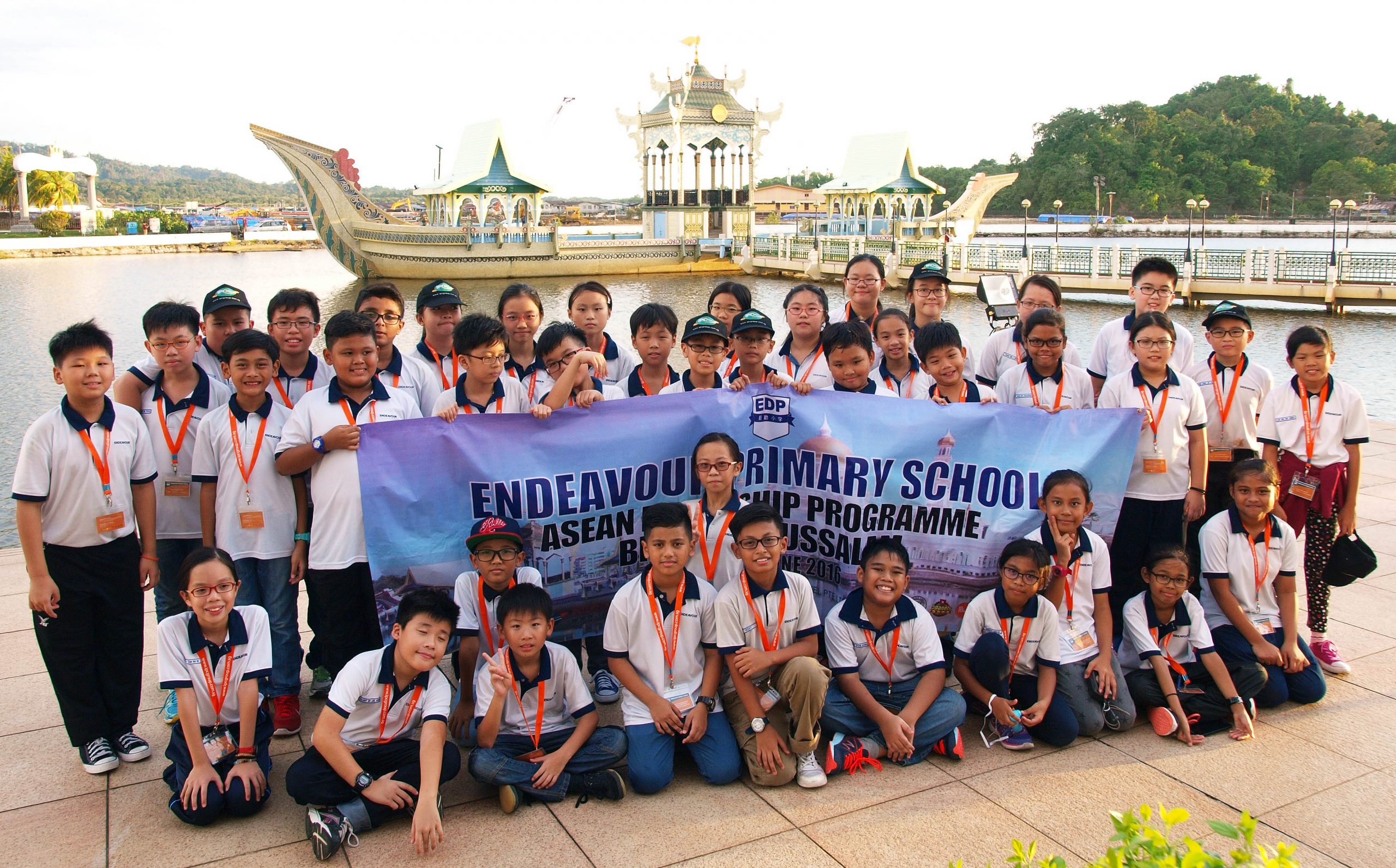
Staff and Students engaging parents on Knowledge-Building practices during P1 Open House.
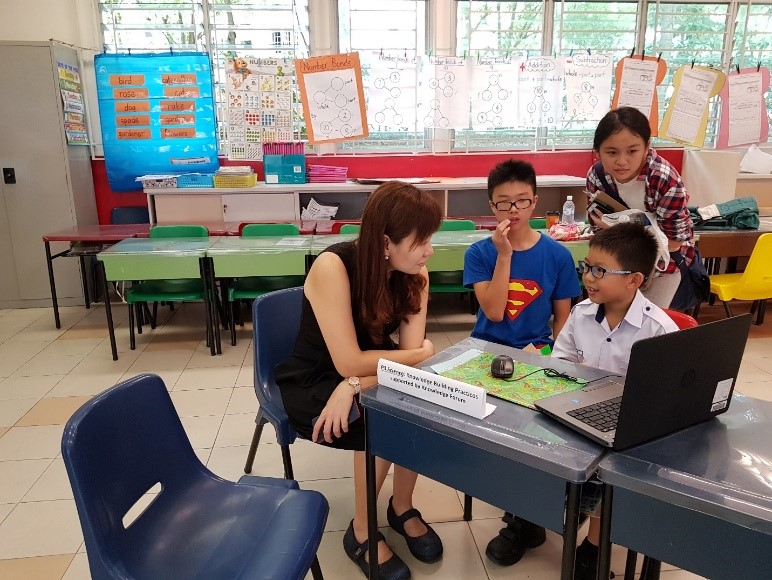
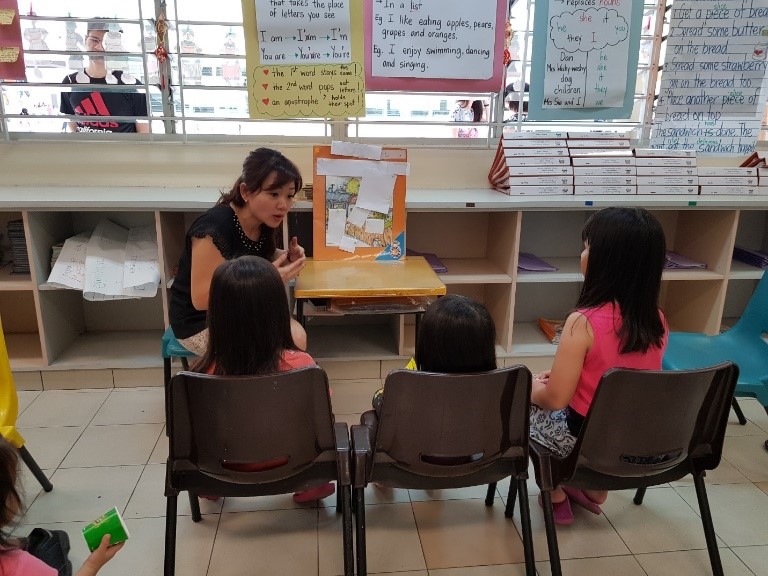
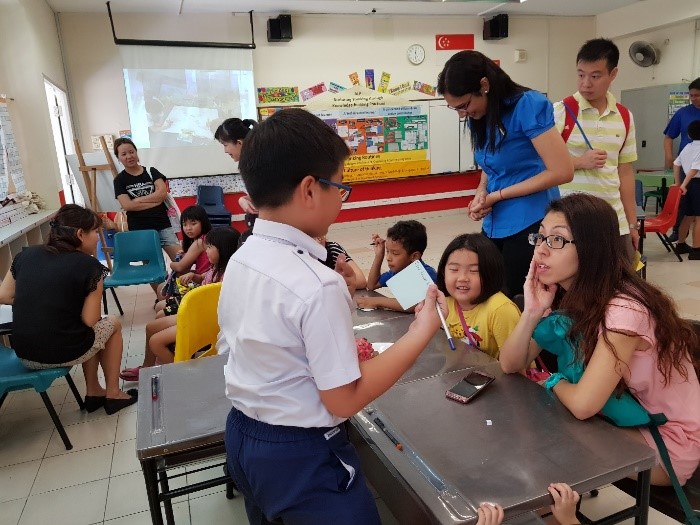
Making Thinking Visible during an Art lesson.
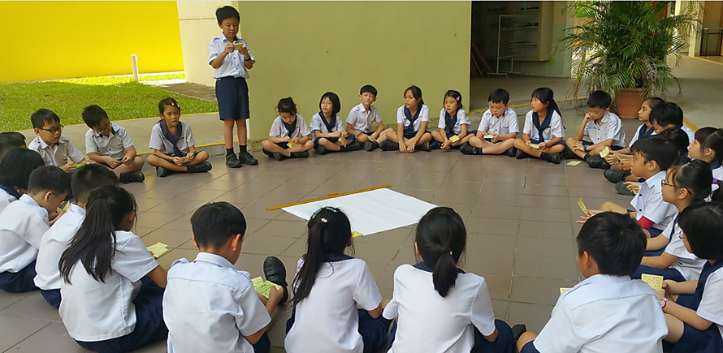
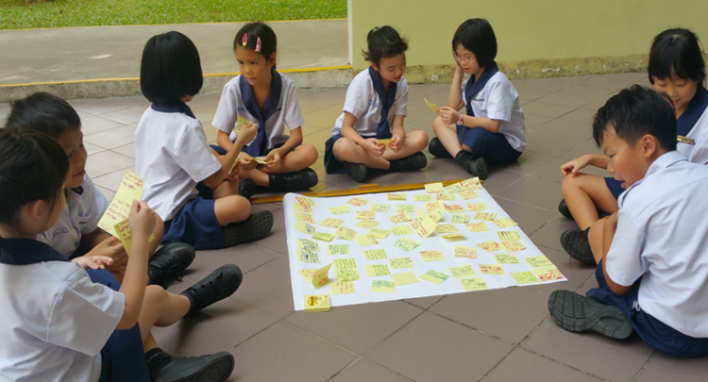
Students using concept maps to think aloud.
